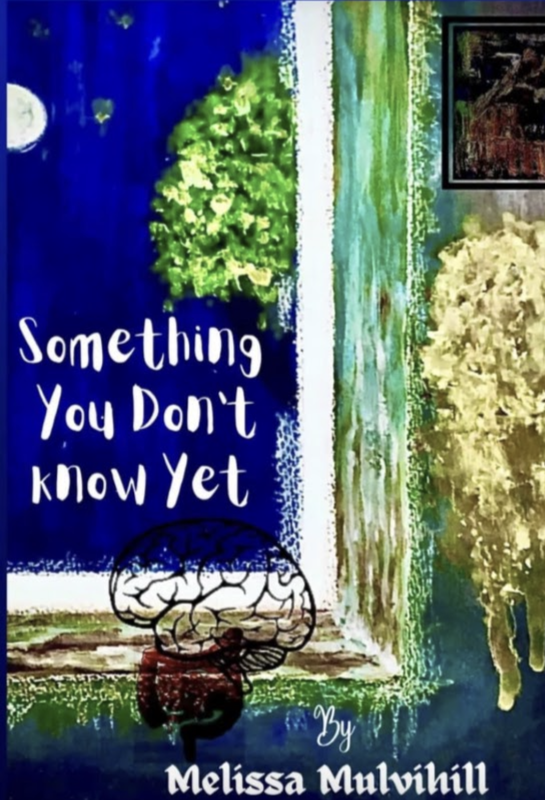- If Not the River
- About
- Something You Don't Know Yet - Chapbook with ShabdAaweg Press
- Buy Chapbook Something You Don't Know Yet at ShabdAaweg Press
- Contact
- Mouthful of Storm- Wild Roof Journal/lyrical prose
- This Blood Is Beautiful-Wishbone Words/CNF
- No One Writes About Agnes-The Red Fez Literary Magazine/CNF
- Mine-Hearth & Coffin/CNF
- The Elephants Only I Can See-TMP Magazine, Lyrical Prose
- Dust-Miniskirt Magazine/CNF
- The Woman With Mice-Misery Tourism/Fiction
- How to Wake Up Feeling Dangerous-Anti Heroin Chic Magazine/Poetry
- Bone World-Prometheus Dreaming/lyrical prose
- I Know a Wall When I See One - Tangled Locks Journal/CNF
- Animal Instinct- Pangyrus Literary Magazine/CNF
- Tick-HerStry/CNF
- Handler-Anti-Heroine Chic Magazine/CNF
- When the East Wind Comes-Months to Years Literary Journal/CNF
- The Man with the Round Tomatoes in the Square Baskets-Prometheus Dreaming/CNF
- Pandemically Yours
- Chariotless God-Kalopsia Literary Journal/CNF
- The Dead Are Holding Something Back-Prometheus Dreaming/CNF
- The Carving Tree-Write Launch Literary Magazine/poetry
- Along Third Street-Impspired Literary Magazine/poetry
- Me Going Gone-Impspired Literary Magazine/poetry
- For Grief and For Ironing-The Feminine Collective/lyrical prose
- When the New People Came-The Blue Nib Literary Magazine/poetry
- At the Mercy of my Own Forgetting-Write Launch Literary Magazine/poetry
- The Rent I Pay-Write Launch Literary Magazine/poetry
- By the Dead Purple Lady-The Write Launch Literary Magazine/poetry
- Unbearably Gone-The Write Launch Literary Magazine/poetry
- Evidence of a Struggle-The Write Launch Literary Magazine/poetry
- Your Phone Call-The Blue Nib Literary Magazine/poetry
- Sylvie of the Stone Stoop-Intermission/poetry
- Charlie's Assessment-Intermission/poetry
- Signed, Legally Ryn-Intermission/poetry
- It's Been Raining-Intermission/poetry
- Fingerprint Failure-The Blue Nib Literary Magazine/poetry
- Bolstered by the Flask-The Blue Nib Literary Magazine/poetry
- I Hear Them Bleeding Hope-The Blue Nib Literary Magazine/poetry
- I'm Partial-The Blue Nib Literary Magazine/poetry
- Inside Out Pain-The Blue Nib Literary Magazine/poetry
- Probably Confabulations-The Blue Nib Literary Magazine-poetry
- Revenant Gloam-The Blue Nib Literary Magazine/poetry
- Lies Heavy-The Blue Nib Literary Magazine/poetry
- Mark of the Empty-The Blue Nib Literary Magazine/poetry
- Barely Aloof-Poet's Haven Digest Anthology, The Distance Between Insanity and Genius/poetry
- Fata Morgana-The Blue Nib Literary Magazine/poetry
- Time Will Spend Us-The Blue Nib Literary Magazine/poetry
- I Cannot Make Permanent Things-The Write Launch Literary Magazine/poetry
- A Silence Necessary-The Blue Nib Literary Magazine/poetry
- Tidally Locked-The Blue Nib Literary Magazine/poetry
- Blue, I Think-The Blue Nib Literary Magazine/poetry
- Revenant Gloam-The Write Launch Literary Magazine/poetry
- Swiftly Flying Shadow Bands-The Blue Nib Literary Magazine/poetry
- Apostle of Disbelief-Poet's Haven Digest, It Was a Dark and Stormy Night AnthologPublished in The Poet’s Haven Digest Anthology, Strange Land and in The Blue Nib Literary Magazine/poetry
- A Measurable Objective-Impspired Literary Magazine/poetry
- Cacti Toucher-Impspired Literary Magazine/poetry
- Mean Free Path-Impspired Literary Magazine/poetry
- I am a Bridge-Impspired Literary Magazine/poetry
- A Gurney for Me-The Feminine Collective/poetry
- Just the Other Stuff-The Feminine Collective/poetry
- A Valid Exit-Impspired Literary Magazine/poetryu
- Everything Hard is Tangled-Impspired Literary Magazine/poetry
- On Zillow-Impspired Literary Magazine/poetry
- Out by the Shed-Impspired Literary Magazine/poetry
- Press
- Blog
|
Living with undiagnosed or contested illness means existing in a fluctuating state of unidentified crisis. Our infant son, born with gastroparesis (delayed gastric emptying), GERD (gastroesophageal reflux disease), and IBS, was missing a diagnosis that eventually in his fifth year would be identified as Cyclic Vomiting Syndrome (CVS) .
Being forced into intense vulnerability by having an infant, a toddler, and then a young child with CVS was difficult enough without the fact that we, as parents, were also expected to become clear and concise self advocates in order for our son to be given care in that vulnerability. The thing is, no matter how clear and concise we were, there was no winning. We were frequently punished for having opinions and needs. CVS created a relationship really, between our child as self and our child as biology. The cluster of symptoms forced a preoccupying relationship upon him and us, with the CVS being a very poor communicator, debilitating him with nausea and vomiting, and yet holding all the power, and then with our son being unable to communicate effectively at all, and holding none of the power. We often communicated with medical professionals who considered me, in particular, to be an unreliable witness to our son’s condition. Being in these relationships was a dirty and necessary thing, and frequently understanding, if it came at all, often tended to be either in the form of crude moralism, crude reductionism, or dispensation of mundane medical information as advice. There's a general sentiment amongst able-bodied adults that all doctors find objective truths, solve puzzles, or help patients with complex cases, but that's just the heroic rhetoric we use to frame the profession. It's not reality. Like everything else, our medical system actively discriminates against difficult to diagnose people, because people who are sick with syndromes, a collection of symptoms that are caused by any number of underlying etiology and physiology, represent a failure of the system to do what it’s supposed to do: make people well. The poems and prose within are about what it was like trying to find an accurate diagnosis for our son. The message I hope readers get from this is that you can persist and hope through illness. The message I hope doctors get from this is that when you've run out of doctor things you can offer the patient, always make sure you've offered the human things too.
1 Comment
|
AuthorI write poetry and prose about living with chronic and contested illnesses and about family relationships. Archives |
Proudly powered by Weebly

 RSS Feed
RSS Feed